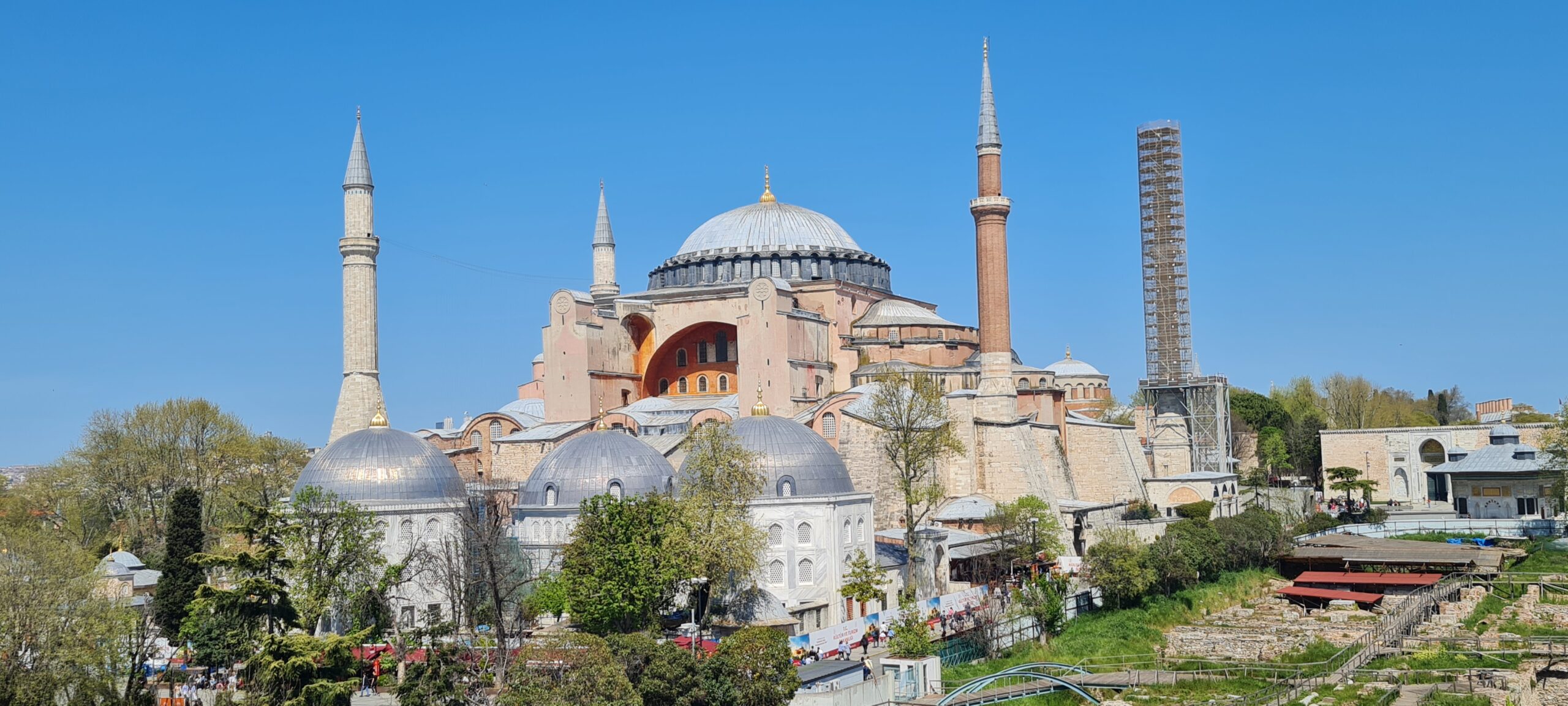Turkey
Why visit Turkey?
Turkey is where continents meet—literally and culturally. Straddling both Europe and Asia, it’s one of the few countries where ancient empires, breathtaking landscapes, and bustling modern life collide so seamlessly.
What makes Turkey special isn’t just its historical significance—though it has plenty, from Roman theaters and Greek temples to Ottoman palaces and Byzantine churches. It’s the way this past is still very much alive today, embedded in daily life, in the food you eat, the music you hear, and the hospitality you experience.
Additionally Turkey is also very diverse. While the West feels Mediterranean, with coastal towns and European flair, central and eastern Turkey offer rugged steppe landscapes and a more authentic experience.
Quick Country Facts

Capital
Ankara
Currency
Turkish Lira (TRY)
1€ = 43,3 TRY
Population
85 Million
Languages
Turkish, but also Kurdish & Arabic
Best time to visit
All year around
Food
Kebap – Grilled meat skewers Meze – Small appetizer dishes Lahmacun – Thin meat flatbread
Safety
Turkey is generally a safe country for travelers, especially in major tourist areas like Istanbul, Cappadocia, Antalya, and the Aegean coast. Violent crime is rare, and locals are famously hospitable.
When travelling near the Syrian border I’d advice to stay informed about the current situation.
Public transport is safe, and solo travelers, including women, usually feel comfortable, though dressing modestly outside tourist areas can help avoid unwanted attention.
Before you go
Visa
Visa free for EU and US citizens.
Nationalities without free visa can easily apply online here.
Getting around Turkey is easy and affordable. Intercity buses are the most popular way to travel — they’re frequent, comfortable, and cover nearly every corner of the country. For longer distances, domestic flights are cheap and save time.
In cities, you’ll find metros, trams, and minibuses (dolmuş), especially in places like Istanbul and Ankara. Taxis are widely available but make sure the meter is running. Apps like BiTaksi and Uber also work in major cities.
Transport
Difficulty
Traveling in Turkey is generally easy and beginner-friendly. The country has a well-developed tourism infrastructure, and English is commonly spoken in tourist areas. Public transport is reliable, accommodation is easy to find, and locals are famously hospitable — especially toward solo travelers.
That said, rural regions may come with a language barrier and fewer options for booking things online, but with a bit of patience (and maybe a translation app), it’s very manageable. As a solo traveler, you’ll often find yourself welcomed with tea, conversation, and directions, even if there’s no shared language.
Turkey is very well connected by both air and land, making it accessible for most travelers. Whether you’re flying into a major city or crossing overland from a neighboring country, getting in is usually straightforward.
✈️ Arrival by Air
Turkey has several major international airports that serve as key entry points:
Istanbul Airport (IST) – The main international hub and one of the busiest airports in the world.
Sabiha Gökçen Airport (SAW) – Also in Istanbul, popular with low-cost carriers.
Ankara Esenboğa Airport (ESB) – Serving the capital city.
🚗 Arrival by Land
Turkey shares land borders with eight countries, and crossing overland is possible at several points:
From Europe
Bulgaria: The Kapıkule–Kapitan Andreevo border is the busiest and most developed land crossing.
Greece: You can enter via the İpsala–Kipoi border.
From Georgia
Sarp–Sarpi is the main crossing on the Black Sea coast and frequently used by travelers heading to or from Batumi.
Türkgözü and Aktaş are other crossings further inland.
From Armenia
Closed. There is no open border crossing between Turkey and Armenia due to political tensions.
From Iran
Gurbulak–Bazargan is the main entry point and commonly used by overland travelers.
Esendere–Sero is another, though less used.
From Iraqi Kurdistan (Iraq)
Ibrahim Khalil–Habur is the primary crossing for those entering from Duhok or Zakho. It’s open and active, though you may encounter additional checks.
From Syria
Border crossings are closed to tourists.
Getting in
Budget
While prices have increased in recent years due to inflation, it’s still possible to travel on a tight budget without sacrificing too much comfort.
Here’s a rough idea of daily costs:
Backpacker: €25–35 EUR/day
Dorm beds, street food, public transport, and occasional paid attractions.Mid-range: €40–90 EUR/day
Budget hotels, nice meals, entrance fees, and tours.Luxury: €100+ EUR/day
Descent hotels, fine dining and private guides
All Posts
